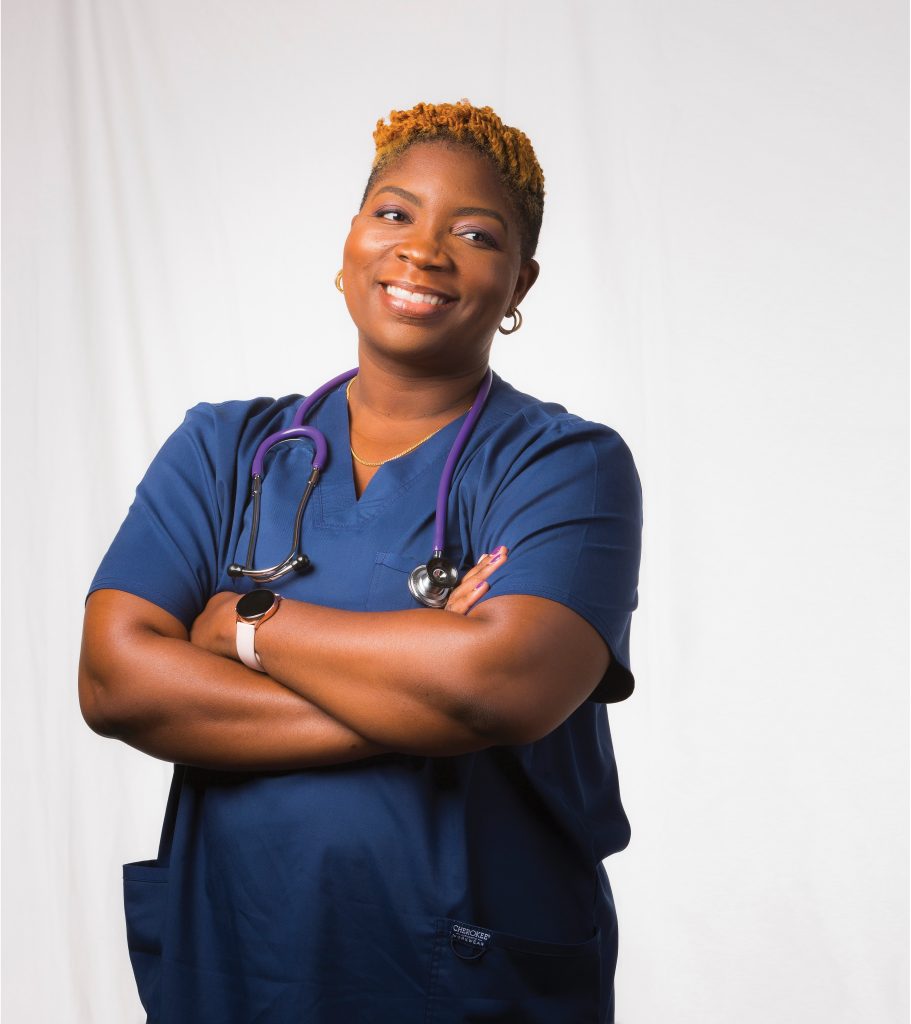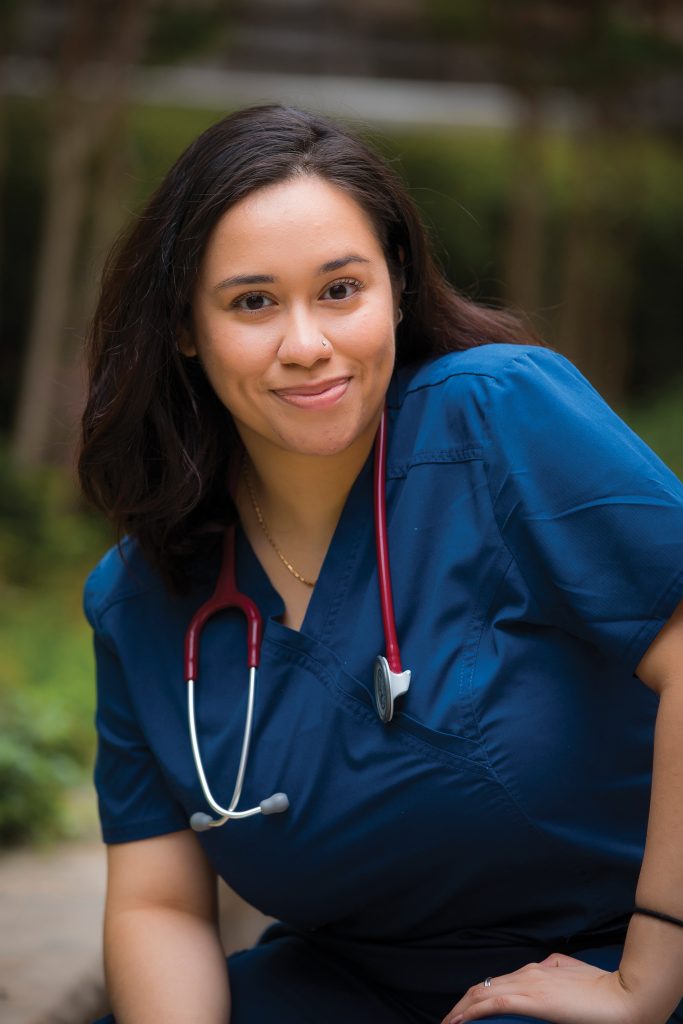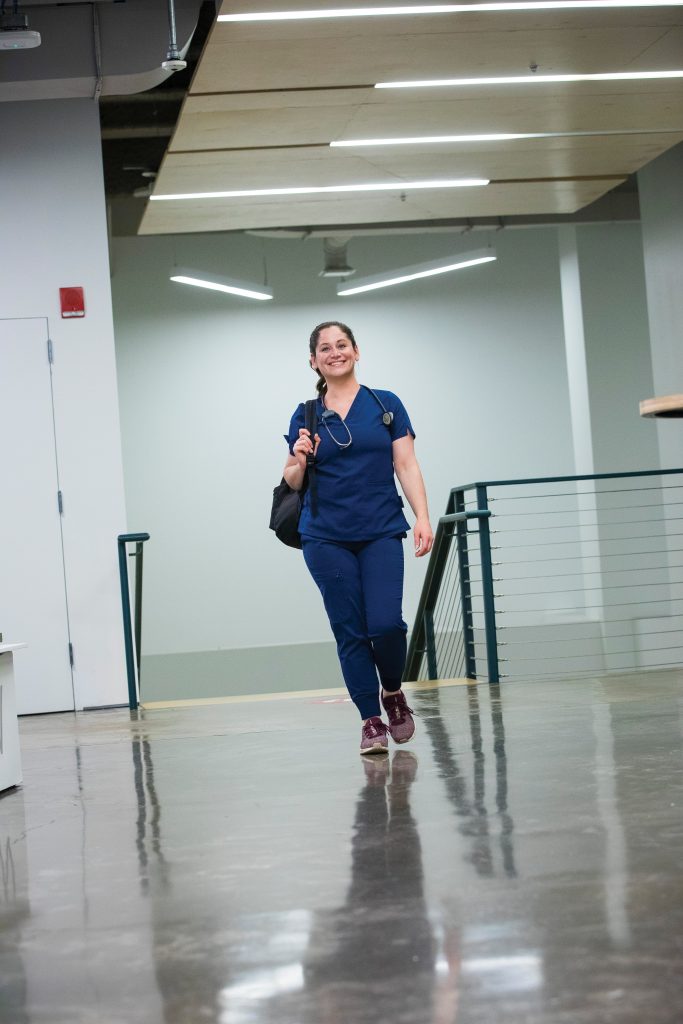The Pandemic’s Newest Nurses Helped Battle COVID-19 Crisis
March 2020. A time of exhilaration and relief. Graduation day was near, much like every year before. Students took a deep breath; they had almost finished their studies; they were almost ready to begin new careers.
But suddenly everything changed. COVID-19 swooped in, infecting hundreds, then thousands in New Jersey and New York; hospitals overflowed with critically ill patients; health care professionals struggled to manage the crisis; nurses across the country traveled to New Jersey to work side by side with their colleagues.
In May, Rutgers School of Nursing (SON) graduated more than 350 bachelor’s degree students three weeks early. And the state of New Jersey granted new grads emergency temporary licenses so they could start work right away. With hospitals and agencies in dire need, the soon-to-be nurses moved out to join the battle. Three of these graduates from the class of 2020 provide a glimpse of their experiences.
Hospitals were in dire need. New nursing graduates were needed to enter the workforce immediately. They were ready — and able — to step into their new and challenging roles.

Donna McFadden (MA, BS, BA, RN)
Despite 12 years’ experience as an outpatient mental health care provider, Donna McFadden began her first nursing job at an urban New Jersey medical center with some trepidation. A graduate of SON’s accelerated, second-degree Bachelor of Science in Nursing program, this Newark native already held an undergraduate degree in psychology and a master’s in counseling and was used to working in crisis situations. Her goal has always been “to empower people to learn to fix their problems,” she says. “I returned to school for nursing so I could address the whole person, both mental and physical concerns.”
The nursing program, she says, was “intense and challenging,” preparing her well for what lay ahead. “My mom was a nurse and I worked with nurses. I knew their work was hard.”
She accepted a job on the oncology unit, which had suddenly been transformed into a COVID-care unit at the start of the pandemic. “I brought with me my background of holding people’s hands, of trying to understand how each patient was feeling. But with the demands of COVID-19 care, there wasn’t time to slow down for one individual patient. That was very hard for me.”
Strangely, she says, with COVID cases on the decline, “I’m even busier now. We’re trying to fix a year of neglect of conditions like uncontrolled diabetes and heart failure.”
She hopes to be able to blend nursing and mental health care in the future. McFadden’s advice to future nursing students: “It’s difficult, but you can do it. Be part of a study group. Nursing is teamwork. Start learning to work on a team while you’re still in school.”

Ashley Lopez (BS, RN)
A graduate of New Brunswick Health Science Technology High School, and the first in her family to pursue college, Ashley Lopez says that a nursing career has been her goal since childhood. She entered the four-year Bachelor of Science in Nursing program in fall 2016, and finished in May 2020, during the peak months of COVID-19 in New Jersey. She quickly landed a job in a neonatal intensive care unit (NICU), happy that the state issued emergency licenses for nurses in May, allowing her to start work while studying for her Boards.
COVID-19 rarely infects babies, but “policies and protocols affecting families with newborns in the NICU changed because of COVID-19,” she says. The large unit with an open floor plan houses 50 to 60 infant patients and, generally, parent visitation is encouraged around the clock. But COVID-19 safety protocols included limiting visitation to two-hour stays, twice per day, while enforcing social distancing, to protect families and staff. In situations where parents felt they might have been exposed to the virus, “we Face Timed with them, making sure they were OK, and tried to help them through the period of not seeing their newborns.”
Looking back to day one of her job, Lopez says, “COVID-19 impacted all of us, but definitely the adult ICUs were hit much harder. The hospital as a whole came together in response to the challenging times.”

Seta Bairamian (BFA, BS, RN)
After earning an undergraduate degree from NYU in theater and applied theater, and nine years working in that field, Seta Bairamian switched careers, graduating from Rutgers’ accelerated, second-degree nursing program in August 2020. “Humanity, compassion, vulnerability, listening, and building trust are fundamental to both acting and nursing,” she says. She had considered a nursing career while in high school, and kept revisiting her grandmother’s riveting stories gleaned from a life-long nursing career. Spending time with her father when he was very ill and hospitalized for a month also made a profound impact. “I started to realize how much nurses do,” she says.
Now working as a COVID vaccinator for a New Jersey health care system, Bairamian looks forward to specializing in acute care nursing. “I’ve gained confidence on the job and learned it’s OK to take your time and follow unexpected routes and to pursue learning experiences wherever they are.”
